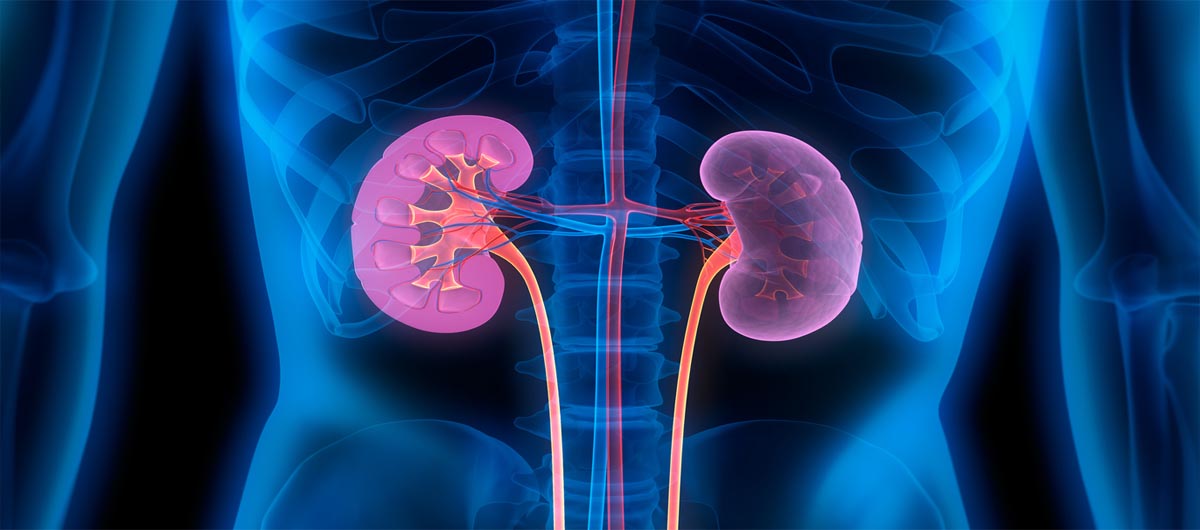


At Zoy MultiSpeciality Hospitals, we believe in enhancing the quality of life for our patients and giving them a boost to live life to its fullest potential. Saving a human life is one of the most noble and compassionate acts, and we feel privileged to offer a second chance at a normal, healthy life through our medical procedures. As part of our mission to educate and raise awareness about various health issues, we would like to share information about a life-saving procedure available at Zoy MultiSpeciality Hospitals.
The kidneys are two bean-shaped essential organs situated in the back muscles (on either side of the spine) of the upper abdominal cavity in our body and that play several important roles in maintaining overall health, including:
Overall, the kidneys are crucial for maintaining good health, and any disruptions to their function can lead to serious health problems.
Some common kidney diseases are:
The most common form of kidney disease is Chronic Kidney Disease (CKD). CKD is a progressive condition in which the kidneys lose function over time, leading to the build-up of waste and fluid in the body. CKD can be caused by a variety of factors, including diabetes, high blood pressure, and glomerulonephritis. Common symptoms include fatigue, swelling, and decreased urine output, and it can lead to serious complications, such as kidney failure, cardiovascular disease, and nerve damage. Early detection and management are important for slowing the progression of CKD.
Chronic Kidney Disease (CKD) is a progressive condition in which the kidneys lose function over time, leading to the build-up of waste and fluid in the body. CKD can be caused by a variety of factors, including diabetes, high blood pressure, and glomerulonephritis. Common symptoms include fatigue, swelling, and decreased urine output, and it can lead to serious complications, such as kidney failure, cardiovascular disease, and nerve damage. Early detection and management are important for slowing the progression of CKD.
Treatment options for kidney failure include:
Dialysis is a medical treatment used to remove waste products and excess fluid from the blood when the kidneys are no longer able to function properly. There are two main types of dialysis: hemodialysis and peritoneal dialysis. In hemodialysis, blood is redirected to an artificial kidney machine that filters out waste and fluid before returning it to the body. In peritoneal dialysis, a special fluid is introduced into the abdominal cavity through a catheter to remove waste and fluid, which is then drained out of the body. Dialysis helps to control symptoms and prevent complications associated with kidney failure.
A patient is usually advised for a kidney transplant when their kidney function has declined to a point where they need regular dialysis to stay alive or when they have end-stage renal disease (ESRD). Other factors that may be considered when deciding if a patient is a candidate for transplant include their overall health, age, and the presence of any other medical conditions. The transplant evaluation process includes a thorough medical and social assessment, as well as a review of the patient's treatment options and willingness to comply with post-transplant care requirements.
Kidney transplant is a surgical procedure in which a healthy kidney from a donor is implanted into a person with end-stage renal disease (ESRD) or advanced chronic kidney disease. The transplantation of a healthy kidney can replace the function of the diseased or damaged kidneys, allowing the patient to lead a more normal life with improved kidney function. The kidney can be from a deceased donor or from a living donor, who may be a relative, friend, or anonymous volunteer. After the transplant, the patient will need to take immunosuppressant medications to prevent rejection of the transplanted kidney, and regular medical follow-up to monitor their kidney function and overall health.
The two main types of kidney transplants are:
here are also subtypes of kidney transplants, such as:
Directed Donor Transplant: A directed donor transplant is a living donor transplant in which the donor is someone who the recipient knows, such as a relative or friend. Paired Kidney Exchange (PKE): Paired Kidney Exchange is a program that allows individuals with incompatible living donors to exchange donors with another incompatible pair so that each recipient can receive a compatible kidney transplant.
ABO-Incompatible Transplant: An ABO-Incompatible transplant is a transplant procedure in which the blood types of the donor and recipient are different. This type of transplant typically requires additional medical management to reduce the risk of rejection.